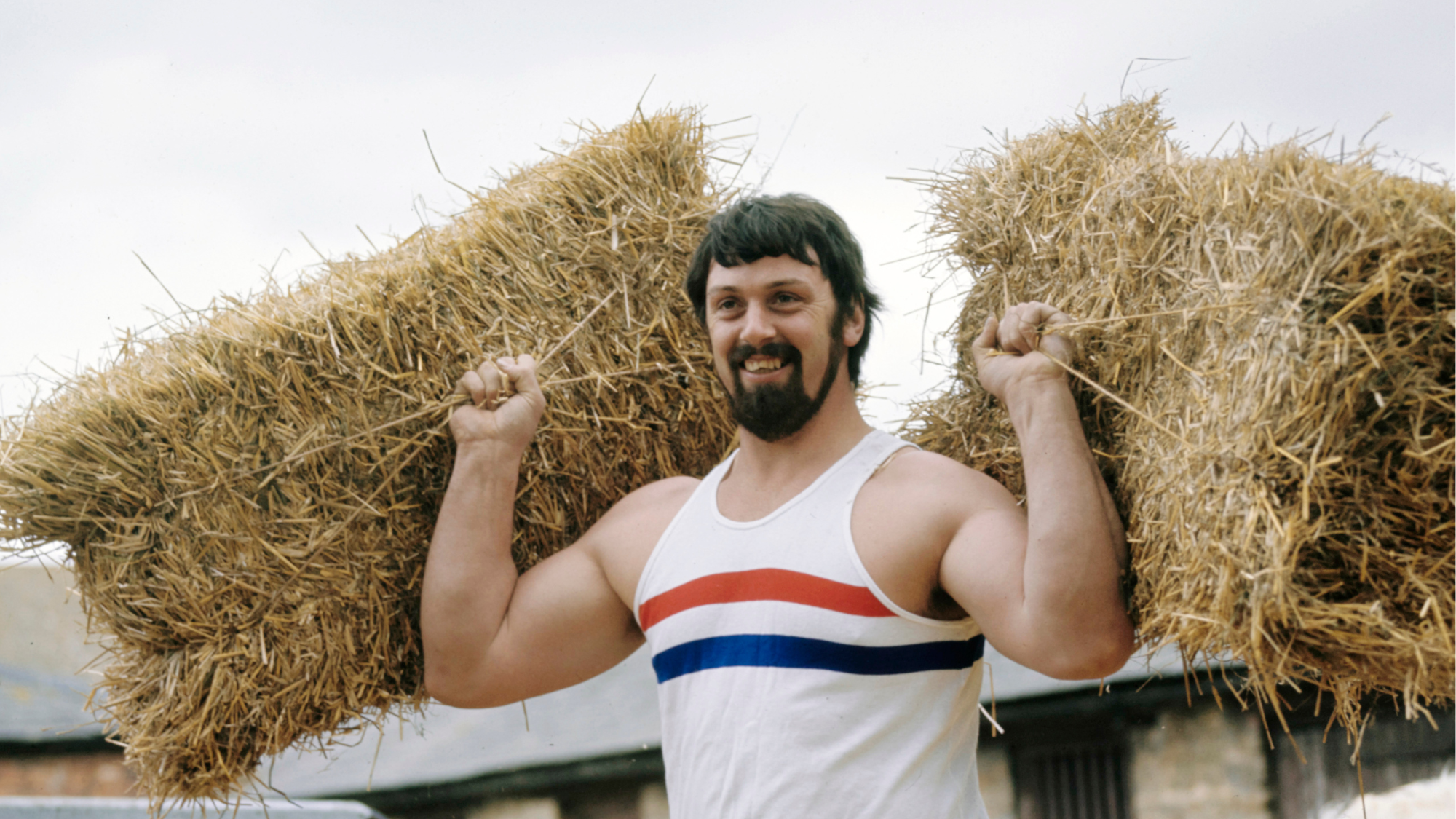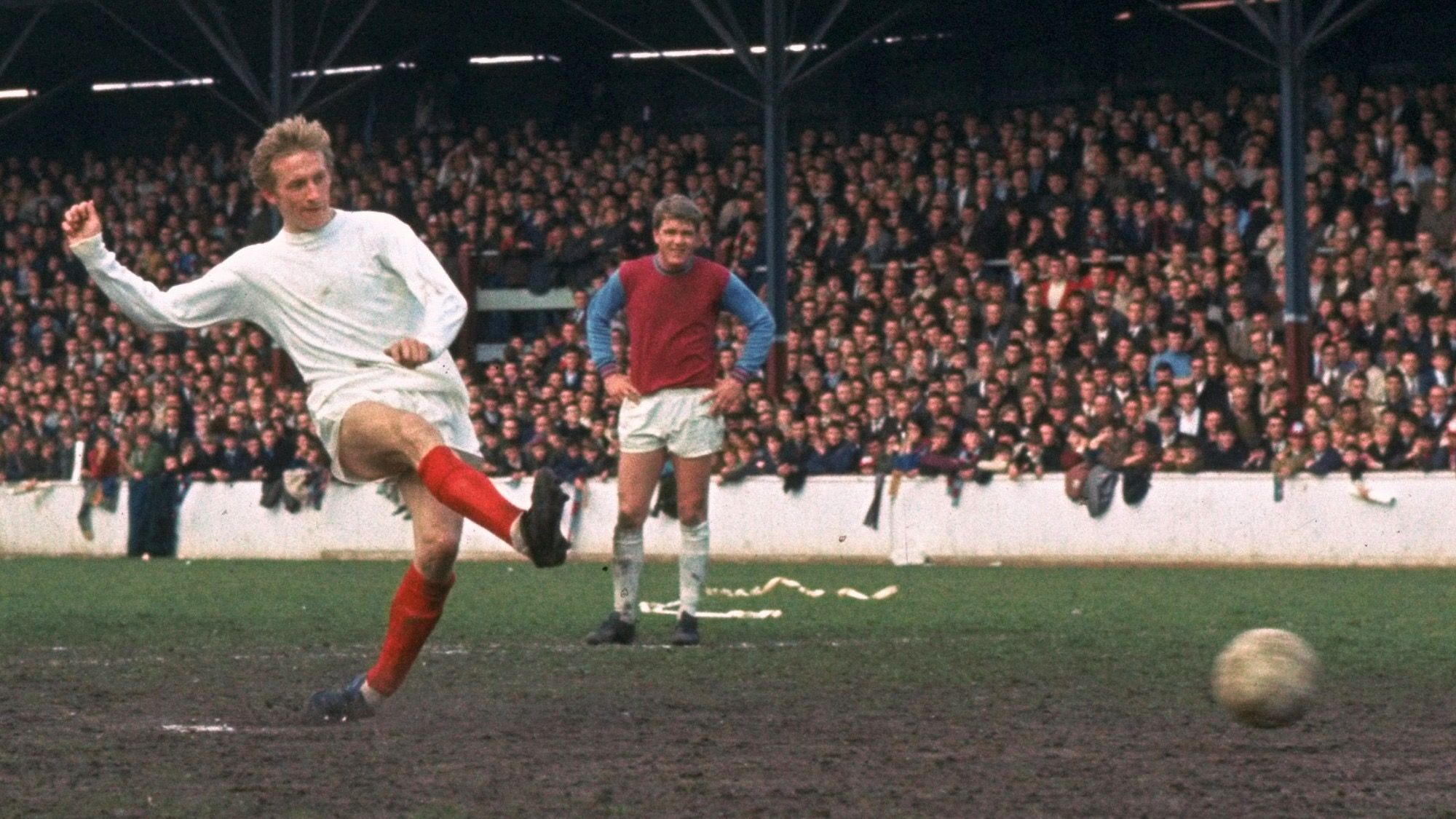Geoff Capes obituary: shot-putter who became the World’s Strongest Man
The 'mighty figure' was a two-time Commonwealth Champion and world-record holder

A free daily email with the biggest news stories of the day – and the best features from TheWeek.com
You are now subscribed
Your newsletter sign-up was successful
Standing 6ft 6in, and weighing more than 26 stone, Geoff Capes was a "mighty figure who commanded international respect as a shot-putter", said The Guardian: he won gold in the Commonwealth Games in 1974 and 1978, and represented Britain at three Olympic Games; but in the 1980s, he became far more widely known as Britain's Strongest Man (a title he won in 1979) and the World's Strongest Man (in 1983 and 1985). Thereafter he was regularly seen on British TV screens tossing cabers, dragging lorries and ripping apart telephone books.
A frequent guest on "Record Breakers", Capes won a place in the Guinness Book of World Records for throwing a brick 146ft, said The Daily Telegraph. He won the World Highland Games five times, and was the Scottish Highland Games champion seven times. When he wasn't flexing his enormous muscles, he bred budgerigars. He had become interested in the birds in 1970s, when he was working for the Cambridgeshire police. Sent to arrest a man for non-payment of a fine, he noticed his collection of budgies, and over a cup of tea they had a "nice chat" about them. "It seemed a shame when, after the conversation ended, I suddenly remembered what I had to do," he recalled.
Geoffrey Capes was born in Holbeach, Lincolnshire, in 1949. His mother was 6ft and weighed 18 stone. She had six children by two former marriages; Geoff was the first child of her third, to an agricultural labourer, and was followed by two more. All 11 lived in three converted labourer's cottages in the Fens. Money was very tight. "The family wasn't just working class, but was on the lowest rung of that very long ladder that is the English class system," Capes said. He was educated at George Farmer School in Holbeach, where he marked himself out as a talented athlete but got involved in a lot of fights, and was banned from the local football team for punching a referee. He left school with no qualifications aged 14; on his last day, the headmaster told him he'd never make anything of himself.
The Week
Escape your echo chamber. Get the facts behind the news, plus analysis from multiple perspectives.

Sign up for The Week's Free Newsletters
From our morning news briefing to a weekly Good News Newsletter, get the best of The Week delivered directly to your inbox.
From our morning news briefing to a weekly Good News Newsletter, get the best of The Week delivered directly to your inbox.
So this self-described "village yobbo" joined his father in the fields; but he was already working on his strength and, aged 15, he proved it by loading 20 tons of potatoes onto a lorry in 20 minutes. By then, he had joined a local athletics club, where he was spotted by Stuart Storey, an international hurdler a few years his senior, who encouraged him to work on his upper body strength, and to keep away from the other local tearaways. By the age of 17, he was starting to make a name for himself as a shot-putter. He represented Britain for the first time in 1967, became national indoor and outdoor champion the year after that; and in 1969 he joined the police, to subsidise his unpaid sporting career. He proved a useful addition to the force. "When I was on duty there were never any fights on Friday nights," he said. "If things turned ugly, they'd always say, 'Send for Capesy'."
A large part of the money Capes earned went on his 12,000-calorie-a-day diet, which included seven pints of milk, a leg of lamb, a dozen eggs and two steaks. As well as competing at the Commonwealth Games, he won gold twice at the European Indoor Championships; but to his disappointment, Olympic medals eluded him. Capes was a hothead, said The Times, and had several arguments with sporting authorities. The Olympics in 1980 was his last amateur event. He was, he said getting bored of throwing an iron ball.
In later life, he appeared in pantomimes, cared for his birds, ran a gym, did charity work and served as a magistrate. He had a fear of flying, but in 1990 he braved the long-haul trip to South America to see his beloved budgerigars in the wild. It was a "dream come true", he told the Daily Mail.
A free daily email with the biggest news stories of the day – and the best features from TheWeek.com
-
 6 of the world’s most accessible destinations
6 of the world’s most accessible destinationsThe Week Recommends Experience all of Berlin, Singapore and Sydney
-
 How the FCC’s ‘equal time’ rule works
How the FCC’s ‘equal time’ rule worksIn the Spotlight The law is at the heart of the Colbert-CBS conflict
-
 What is the endgame in the DHS shutdown?
What is the endgame in the DHS shutdown?Today’s Big Question Democrats want to rein in ICE’s immigration crackdown
-
 The price of sporting glory
The price of sporting gloryFeature The Milan-Cortina Winter Olympics kicked off this week. Will Italy regret playing host?
-
 Hulk Hogan
Hulk HoganFeature The pro wrestler who turned heel in art and life
-
 Cricket's crackdown on 'monster' bats
Cricket's crackdown on 'monster' batsIn the Spotlight Indian Premier League has introduced on-pitch checks to ensure bats meet strict size limits
-
 The Masters: Rory McIlroy finally banishes his demons
The Masters: Rory McIlroy finally banishes his demonsIn the Spotlight McIlroy's grand slam triumph will go down as 'one of the greatest and most courageous victories in the history of golf'
-
 George Foreman: The boxing champ who reinvented home grills
George Foreman: The boxing champ who reinvented home grillsFeature He helped define boxing’s golden era
-
 Why Jannik Sinner's ban has divided the tennis world
Why Jannik Sinner's ban has divided the tennis worldIn the Spotlight The timing of the suspension handed down to the world's best male tennis player has been met with scepticism
-
 When 'a kiss is not a kiss': Spanish football on trial
When 'a kiss is not a kiss': Spanish football on trialTalking Point Luis Rubiales faces up to two-and-a-half years in jail if convicted of sexually assaulting footballer Jenni Hermoso
-
 Denis Law obituary: fond farewell to 'the King of the Stretford End'
Denis Law obituary: fond farewell to 'the King of the Stretford End'In the Spotlight Scottish footballer who was one of Manchester United's 'Holy Trinity' has died aged 84